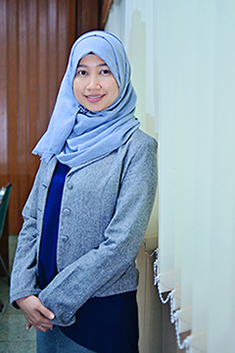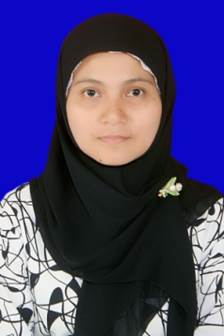Translation and Cultural Adaptation of Multi-Attribute Utility Instrument (MAUI) Indonesian Version of the 15D Questionnaire
Downloads
Background: Diabetes mellitus is a chronic metabolic disorder that cannot be cured and progressively develop into a complication affecting the patient's health-related quality of life (HRQoL). The utility is a measure of preference-based HRQoL. Indirect utility measurements can be measured using the Multi-Attribute Utility Instrument (MAUI) instrument, one of which is the 15D questionnaire that has never been translated and adapted culturally in Indonesian. Objective: Translating and culturally adapting the 15D questionnaire to Indonesian diabetes mellitus patients. Methods: The translation process was carried out through the stages of forward translation, reconciliation, and backward translation involving two qualified translators and three experts in their field. The pilot test stage involved eight respondents consisting of 6 diabetes mellitus patients and two healthy individuals. Results: Problems in the linguistic validation process led to more conformity of word equivalents from the original to the target language. The agreement found was in the area of semantic equivalence, idiomatic equivalence, and experiential equivalence. The problem was resolved by reconciliation during the Focus Group Discussion, which translators and experts in their field attended and discussed with the original author to get equality of meaning in terms of language and culture. The Indonesian version of the 15D questionnaire tested on eight respondents showed results that were easy to understand and straightforward. Conclusion: The Indonesian version of the 15D questionnaire is valid from the linguistic and cultural adaptation stage. Further research is needed relating to the validation and reliability of the questionnaire.
Adina, T. & Mihaela, S. (2021). Translation of 15D Questionnaire into Romanian Language to Study Quality of Life of Cancer Patients in Romania. Medico Oncology; 2; 1-9; doi: 10.52701/monc.2021.v2i1.16.
American Diabetes Association. (2019). Standards Of Medical Care In Diabetes 2019. Virginia: American Diabetes Association.
Akinci, F., Deyneli, O. & Aydar, S. (2005). Translation, Cultural Adaptation, Initial Reliability, and Validation of Turkish 15D's Version. Sage Publications; 8; 53-66; doi: 10.1177/0163278704273078
Brazier, J., Ratcliffe, J., Saloman, J. & Tsuchiya, A. (2017). Measuring and Valuing Health Benefits For Economic Evaluation. Oxford: Oxford University Press.
International Diabetes Federation. (2019). IDF Diabetes Atlas, 9th Edition. Brussels: International Diabetes Federation.
Kontodimopoulos, N., Pappa, E., Chadjiapostolou, Z., Arvanitaki, E., Papadopoulos, A. A. & Niakas, D. (2012). Comparing The Sensitivity Of Eq-5d, Sf-6d And 15D Utilities To The Specific Effect Of Diabetic Complications. The European Journal Of Health Economics; 13; 111-120.
Kementerian Kesehatan RI. (2018). Hasil Riset Kesehatan Dasar (Riskesdas) 2018. https://www.litbang.kemkes.go.id/laporan-riset-kesehatan-dasar-riskesdas/- Accessed: 21 Desember 2019.
Okamoto, N., Hisashige, A. & Tanaka, Y. (2013). Development of the Japanese 15D Instrument of Health-Related Quality of Life: Verification of Reliability and Validity among Elderly People. Plos One; 8; 1-6. doi: 10.1371/journal.pone.0061721
Longobardo, L., Rodríguez-Sánchez, B., Mata-Cases, M., Rodríguez-Mañas, L., Capel, M. & Oliva-Moreno, J. (2017). Is Quality of Life Different Between Diabetic And Non-Diabetic People? The Importance Of Cardiovascular Risks. Plos One; 12; 1-12. doi: 10.1371/journal.pone.0189505
Persatuan Endokrinologi Indonesia (PERKENI). (2019). Konsensus Pengelolaan dan Pencegahan Diabetes Melitus Tipe 2 Di Indonesia. Indonesia: PERKENI.
Rascati, K. (2013). Essentials Of Pharmacoeconomics. Philadelphia: Lippincott Williams & Wilkins.
Richardson, J., Mckie, J. & Bariola, E. (2011). Review And Critique Of Health Related Multi Attribute Utility Instruments. Melbourne: Monash University, Business And Economics, Centre For Health Economics
Silver, B., Ramaiya, K., Andrew, S. B., Fredrick, O., Bajaj, S., Kalra, S., Charlotte, B. M., Claudine, K. & Makhoba, A. (2018). Eadsg Guidelines: Insulin Therapy In Diabetes. Diabetes Therapy; 9; 449-492. doi: 10.1007/s13300-018-0384-6.
Copyright (c) 2023 JURNAL FARMASI DAN ILMU KEFARMASIAN INDONESIA

This work is licensed under a Creative Commons Attribution-NonCommercial-ShareAlike 4.0 International License.
1. The copyright of this journal belongs to the Editorial Board and Journal Manager with the author's knowledge, while the moral right of the publication belong to the author.
2. The formal legal aspect of journal publication accessibility refers to the Creative Commons Attribution-Non-Commercial-Share Alike (CC BY-NC-SA), which implies that the publication can be used for non-commercial purposes in its original form.
3. Every publication (print/electronic) is open access for educational, research, and library purposes. In addition to the objectives mentioned above, the editorial board is not responsible for copyright infringement


.jpg)















